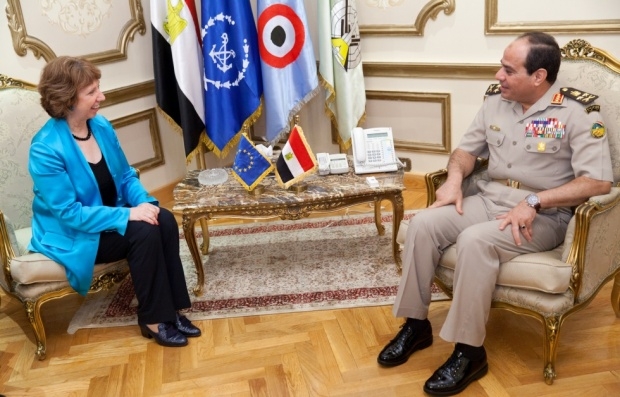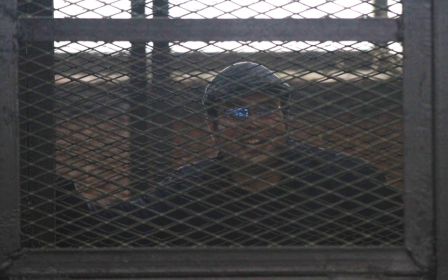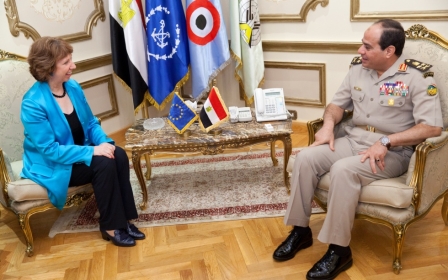EU to go ahead with monitoring Egypt polls despite April 6 plea

The European Union still plans to send observers to Egypt’s upcoming presidential elections despite a plea from one of the opposition groups that led the 2011 revolution to stay away.
In a private letter sent to an EU ambassador, Egypt’s April 6 movement warned that the EU’s presence in the elections will legitimise “current practices in Egypt” and encourage further death sentences and repressive state measures.
"Suspending the mission, however, would send a clear message to [former army chief Abdel Fattah] Sisi as well as to the European and Egyptian public opinions that the EU can hardly accept and even participate in legitimising the current practices in Egypt,” the letter said. “The minimal would be to suspend the election for ‘technical reasons’.”
On Friday, when asked for a response to the letter seen exclusively by the Middle East Eye, a spokesperson for the EU said there is “no consideration that the [observer mission] should be withdrawn.”
The EU announced on Wednesday that, in response to an invitation from the country’s authorities, it has deployed an observation mission to Egypt for the presidential elections, scheduled for 26-27 May.
Stay informed with MEE's newsletters
Sign up to get the latest alerts, insights and analysis, starting with Turkey Unpacked
Ten EU election analysts and 30 long-term observers have already arrived in Egypt to begin their work, according to an EU press release.
The two presidential contenders are Sisi – who led Mohamed Morsi's forcible removal from office – and leftist politician Hamdeen Sabbahi, who came in at third place in the 2012 polls that propelled ousted president Morsi to power.
“The EU has been calling for credible, and transparent elections, allowing universal participation, according to international standards,” the press release said.
However in April 6’s letter, the movement said it was more than evident that conditions under which the EU had said it would send observers, namely inclusive, transparent and credible elections, had not been met in Egypt.
“In times in which more than 20,000 prisoners are detained since the military intervention/coup on July 3, political movements, Islamist and Secular are being banned, and extreme nationalistic propaganda are widely diffused through the State apparatus, it is quite evident that the conditions are hardly met.”
On Monday, April 6 was banned by an Egyptian court. The decision came within an hour of decisions made by a separate court in Minya which sentenced 683 people, including Muslim Brotherhood leader Mohamed Badie, to death and commuted the sentences of 492 others from death to life imprisonment.
The defendants in the cases were charged with various crimes related to attacks on a police station in August 2013 in the wake of nationwide protests following President Mohammed Morsi's 3 July ouster.
“We think it is a political judgment by the regime against the April 6 movement. The regime found the activity in the last 6 months was too revolutionary,” Ramy Sayed, April 6’s mobilisation coordinator, told MEE following the announcement of the verdict against the movement.
The EU called the mass trials in Minya “a clear breach of international human rights law.”
“The EU observes a very worrying trend regarding the compliance of Egypt with its international human rights obligations, as well as the seriousness of Egypt’s transition towards democracy which requires a legal and judicial framework country respecting human rights standards,” according to a 29 April EU press release.
Middle East Eye delivers independent and unrivalled coverage and analysis of the Middle East, North Africa and beyond. To learn more about republishing this content and the associated fees, please fill out this form. More about MEE can be found here.



